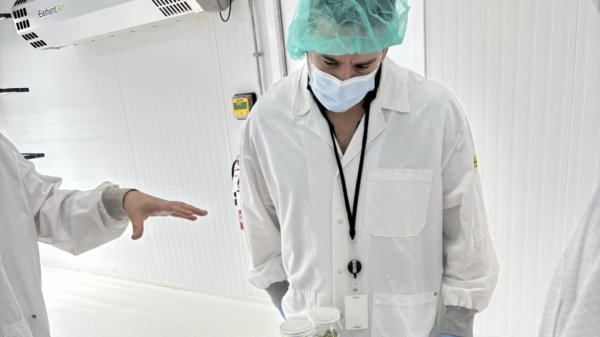Hopping behind the wheel five hours after smoking a joint eliminates weed’s impairing effects, and habitual users are less impaired than occasional ones, according to new research.
In a recent review published in the journal Neuroscience & Biobehavioral Reviews, researchers analyzed the results of 80 scientific studies focusing on the immediate effects of THC on driving performance and driving-related cognitive skills.
The findings cast further doubt on roadside tests that measure impairment based on THC-blood levels. The results also don’t provide provide a reliable benchmark to determine how high is too high to drive.
Using statistical analysis, Australian researchers from the Lambert Initiative for Cannabis Therapeutics predicted the magnitude and duration of THC-induced impairment. They suggest you should wait at least five hours after inhaling cannabis before performing any activity that requires safety-sensitive skills.
They measured data points like a stoned drivers’ reaction time, attention, information processing skills, conflict control and fine motor function among other driving-related skills.
“There appears to be no universal answer to the question of ‘how long to wait before driving?’ following cannabis use: consideration of multiple factors is therefore required to determine appropriate delays between [THC] use and the performance of safety-sensitive tasks,” reads the study.
Cognitive skills required for driving were impaired more dramatically during the peak of the high at one to two hours after consuming cannabis. Other skills like time perception showed a change but not impairment.
However, experienced cannabis users behave significantly different.
“Specifically, Regular Cannabis Use (i.e. weekly or more often) was associated with less cognitive impairment following acute [THC] administration,” reads the study. “A recent systematic review likewise concluded that cannabis has less pronounced behavioural and physiological effects in regular (than occasional) users.”
The physiological change of developing tolerance is reflected in the reduction of cannabinoid receptors in brain cells, a relationship researchers use to explain reduced impairment in habitual users.
Read more: Cannabix vies to be first to capitalize on difficult cannabis impairment market
Read more: RoadSafetyBC flags chronic patient for cannabis use only after legalization
Blood-THC concentration not a reliable marker of impairment
The study also highlights how blood-THC concentrations after consuming edibles differ depending on how much THC was consumed. But the blood-level relationship isn’t as linear with inhaled THC, and wasn’t captured in the research.
Oral THC absorption can be erratic, the researchers note. Based on data available, they report the total time orally absorbed THC impairs someone is around 8 hours post-consumption for 20 milligrams of THC.
“Further research involving regular cannabis users and longer post-treatment time intervals would permit better characterization of [THC] effects and help inform the development of guidelines and drug-driving legislation to promote safe driving practices following [THC] and cannabis use,” reads the study.
Early roadside impairment technology like the Drager DrugTest 5000 have been shot down for their unreliability. Even newer advancements from companies like Cannabix Technologies Inc. (CSE: BLO) (OTC PINK: BLOZF) have been called into question by experts because they still rely on the presence of THC to signal impairment.
Read more: Cannabix announces new THC breathalyzer milestone, DUI lawyer skeptical
But novel approaches skip past the presence of intoxicating molecules altogether.
Predictmedix is a Toronto-based technology developed by Cultivar Holdings (CSE:CULT) that aims to change how companies and law enforcement test sobriety by using facial and voice recognition to detect impaired drivers. The firm is recruiting pilot partners to test its screening solutions.
Top photo by West Midlands Police via Wikimedia Commons
Follow Natalia Buendia Calvillo on Twitter
natalia@mugglehead.com














